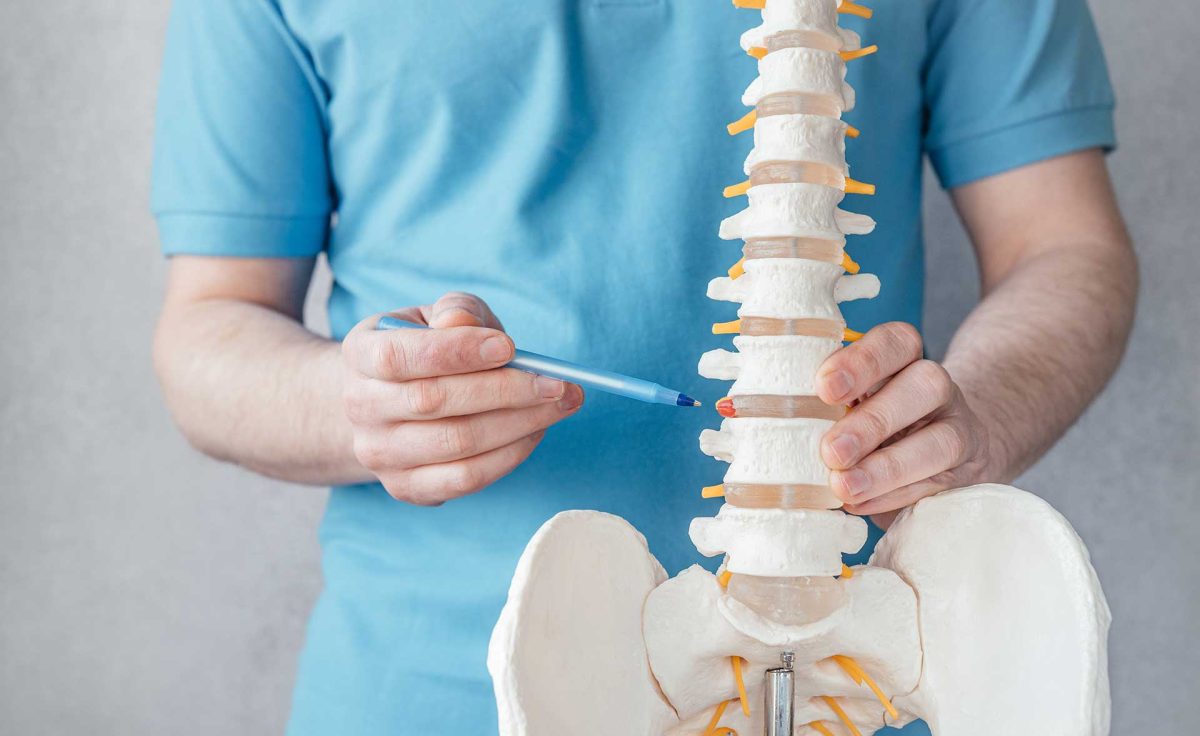A Discus hernia occurs when one of the intervertebral discs prolapses (bulges, leaks). It can occur in any part of the spine, and most often in the lower back area. Depending on where the prolapsed disc has occurred, numbness or weakness may occur in the neck, arm, or leg.
The most common causes of Discus hernia are continuous physical activity (carrying heavy objects, heavy physical work, standing for long periods of time…) or sitting in the same position every day (most often when working at a computer).
Symptoms
Discus hernia occurs most often in the lumbar spine. If the nerve is pressed, in addition to the back, the pain can be felt in the buttocks, thighs, calves, and sometimes in the feet.
With a herniated disc in the neck area, the pain is most often present in the neck, shoulder and arm, and is often described as sharp or burning.
People with a Discus hernia often describe the symptoms as sharp pain (like a knife stab), radiating numbness or tingling in the part of the body served by the affected nerves. Weakness can be felt in the muscles of the affected nerve, inability to lift or hold objects, possible tripping while walking.
Treatment
A Discus hernia can be treated non-operatively, and the best results are achieved by combining chiropractic, physical and kinesi therapy.

